
You are logged in as
Logout
You are logged in as
Logout
"It is a fact that sport is competitive, but the best thing about sport is that there is a place for everyone and enjoyment for all. While some choose to play at a highly competitive level, for others enjoyment comes from the personal satisfaction of seeing improvement in personal skills and fitness and playing with friends."
Dear Parents and Caregivers
Kia ora koutou katoa.
The last five weeks have continued at the busy pace set at the beginning of term, with a highlight being the participation of 168 students in Summer Tournament Week. The various successes in national and South Island tournaments and events have been well recorded in Rector’s Comment and later in this newsletter, and we are very proud and delighted for the teams who won a top three placings in any of these events. At a recent assembly we focused not only on this achievement, but also on the valuable life lessons and important attributes developed throughout such experiences.
It is a fact that sport is competitive, but the best thing about sport is that there is a place for everyone and enjoyment for all. While some choose to play at a highly competitive level, for others enjoyment comes from the personal satisfaction of seeing improvement in personal skills and fitness and playing with friends.
This of course is also true in cultural pursuits and this term we also have celebrated the success of our Pipe Band winning the Juvenile Grade at nationals and coming second in Grade 2, the performances of our choirs and orchestras at assemblies, and the anticipated opening of our Senior Production, Legally Blonde, early in Term 2.
During the term break a number of our students are enjoying overseas trips to Greece and Italy, and Cambodia, plus various competitions and tournaments. Also during the break is the annual ANZAC Day Service. While our Year 12 students will pay tribute to our St Andrew’s Old Collegians who lost their lives in service during World War II, our 1st XV rugby team will be participating in the ANZAC Service in Howick, Auckland, along with other 1st XV players from Saint Kentigern College, Lindisfarne College, and Scots College, who are all gathering at the 34th Quadrangular Tournament for Presbyterian Schools.
Below is my message which has been recorded for the St Andrew’s College ANZAC Day Service in the Centennial Chapel.
Rector’s Message – ANZAC Day Service 2024
As you gather together this ANZAC Day in the St Andrew’s College Centennial Chapel, I am doing similar at the RSA in Howick, Auckland. With me are members, coaches, and management of our StAC 1st XV, along with the players for the annual Presbyterian Schools 1st XV Tournament, now in its 34th year. Young men from Saint Kentigern College Auckland, Lindisfarne College Hastings, Scots College Wellington, and St Andrew’s College Christchurch, are gathered together to remember those from their schools who have served their country in conflicts and many who lost their lives in such circumstances.It is poignant to see these young men together, many in their final year of school, and remember so many of a similar age in the 1940s whose lives were tragically cut short in fighting for their country. Also on this day, five St Andrew’s students are gathered at the Monte Cassino Cemetery in Italy along with teacher, Ian Morrison, at a service to remember the Battle of Monte Cassino fought in March–April 1944, 80 years ago.
Seven years ago in January 2017, our College Centenary year, I had the privilege of joining a group of St Andrew’s College students and staff at Monte Cassino Cemetery where we paid homage to the four Old Collegians, who lost their lives in this battle. It was a most moving experience which will be forever remembered by those present. Our respects, a poppy and a St Andrew’s badge, were laid down by the crosses of the fallen: Gerald Morrison, Thomas Middleton, Neville Barker and Richard Heney.
The annual ANZAC Day Service is a special day on our St Andrew’s calendar. The stories told on ANZAC Day remind us that inclusivity and diversity of thought and belief are vital for the preservation of peace and understanding. I am proud of our StAC students who, I believe, will make their voices heard to keep these values alive in the hearts and minds of the future generation.
Lest we forget.
Christine Leighton
Rector
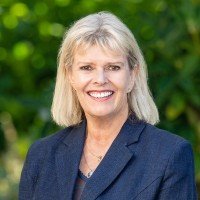
The College continues to invest in cybersecurity measures as part of its overall risk management strategy. The ICT team, in collaboration with a third-party consultant, have made significant progress in a cybersecurity project over the past few years. This project is based on an established framework and maturity model, guiding our efforts to reduce the risk of compromising digital assets and the supporting technological infrastructure.
Like most organisations, the College heavily relies on accurate and up-to-date information. Our datasets are increasingly spread across disparate systems and services. Integrating these systems and providing user-friendly access to the underlying data while incorporating necessary security measures pose a complex challenge.
Although much of this complexity remains unseen by the wider College community, it is not solely the responsibility of the ICT Department. All staff members at the College recognise their role in safeguarding our information and securing our infrastructure. Regular professional development on cybersecurity threats equips our staff, benefiting both their professional and personal digital lives. Recently, the College’s Cybersecurity Incident Response plan underwent testing with key stakeholders during a facilitated tabletop exercise. This practical evaluation helps heighten readiness for emergencies.
Cybersecurity is an ever-evolving challenge, and we are not resting on our laurels.
Dave Hart
Chief Information Officer
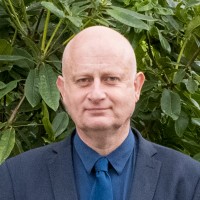
Autumn has arrived early this year with cooler and overcast days, and the changing colour of the leaves. It has been a very busy and successful term with students making the most of the many opportunities on offer at the College.
One of the perks of my job is to support our sports teams at various venues around the country twice a year during Tournament Week. It is always such a pleasure to see students at their best, taking part in something they love to do.
I was so fortunate that I was able to support our Girls’ futsal team win their final in overtime in Wellington, and then next being able to support our Girls’ volleyball team lose their semi, a match that could have gone either way. I was very impressed with the way the team bounced back the next day to easily win their third and fourth playoff match.
I am always surprised when I get asked by parents from other schools why make students take part in co-curricular activities, I thought this is self-evident. Studies have shown that co-curricular activities enrich the educational journey by nurturing the whole person – mind, body, and spirit. It not only keeps you physically active but also shapes your character, fosters connections, and contributes to overall well-being. Co-curricular participation complements academic learning, making education more fulfilling and impactful.
Providing co-curricular opportunities for our students does not happen by itself, it requires a whole team of people to work together to make it possible. Thank you, parents, for always turning up to support your children in such large numbers, they may not appreciate it now, but they will later. It is very noticeable how you always support your child in such a positive and encouraging manner, allowing your child to express themselves on the field without judgement.
I was so delighted with way the students stepped up to host our prospective families on Open Day, and how they presented in such an authentic way for the Year 9 Information Evening last night. Our students are our best advertisement and there is no doubt that they are contributing enormously to the continued interest we are experiencing with regards to the number of applications from families who wish their children to be part of St Andrew’s College.
The combination of online and in-person Parent-Teacher interviews conducted in the last three weeks proved to be enormously successful. The feedback from both teachers and parents would suggest that this model works extremely effectively. The interview sessions were extremely well attended. On behalf of the College, I would like to thank you for making the time to meet with your child’s teachers online to discuss what is going well.
As you are probably very aware, the area in front of the College at drop-off and pick-up times is extremely busy and hazardous and is therefore a real danger zone for our cyclists. With winter fast approaching it is even more important for you to encourage your child to wear something ‘high viz’ when navigating this area.

At the beginning of next term, we will be required to implement and enforce the government’s ban on cell phone use while at school. This means students will be allowed to have phones on them or in their bag but may not use them unless instructed to do so by their teacher. This has already been the case for our Middle School students since 2019, however, this is a slight change from our policy for the Senior College where students are currently allowed to use their phones during interval and lunchtime in the Senior College Common Room.
The Heads of Department have informed me that they are very pleased with the progress they are making in implementing the changes to NCEA Level 1. All teachers are working very hard to ensure that your child will have the very best educational experience despite the challenges change always brings. What we learnt from participating in the English and Agriculture pilots last year is proving to have been of enormous benefit for the other departments to learn from.
This has been a very busy and successful term and I know that staff and students alike are looking forward to the holiday break.
Evert van Florenstein
Head of Secondary School

Introduction
The summer sports season has concluded, culminating in an exciting and highly successful Summer Tournament Week. While we may not have secured victory in every event, a significant number of our rangatahi (young people) had remarkable experiences playing with their peers during this sunny season.
Background and Purpose
As part of our ongoing commitment to enhance our sports programme, we launched a sports survey last winter. This initiative falls under the umbrella of our new Sports Framework, ‘Balance is Better’. The primary goal was to gather insights from parents about their child’s experience in their respective sports during the previous season.
Survey Participation and Gratitude
We are pleased to report that we received responses from 253 parents, marking the first time our school has conducted such a comprehensive survey. Your participation provided valuable information and feedback on each sporting experience, and we extend our heartfelt thanks to all who took the time to share their insights.
Key Findings and Insights
The data we collected allowed us to analyse different sports across various levels. Here are some noteworthy findings:
Looking Ahead to 2024
For the upcoming year, we have enlisted specialist support to enhance and streamline our Summer and Winter Sport surveys. Our goal is to make them clearer and more user-friendly, ensuring that we capture accurate feedback from our sports community.
Your Input Matters
Formal feedback from parents like you is crucial. It provides valuable insights that allow us to improve the overall sports experience for everyone involved. When the Summer Sport survey arrives, I encourage you to take the time to complete it. If you have any questions about last year’s survey or the upcoming one, feel free to reach out to me or our Director of Sport, Mark Lane.
Thank you for your continued support, and let’s make the 2024 sports season even better.
John Haggart
Director of Sports Strategy
APRIL
12 End of Term 1, 3.25pm
25 ANZAC Chapel Service, 10.00am
MAY
6 Term 2 Commences
8 Careers Expo, 5.00pm
12 Legally Blonde Senior Production Opening Night
17 Pink Shirt Day
25 Black & Bling Ball
26 Middle School Chapel Service, 5.00pm
Please view the fixtures on the College intranet for more upcoming events. The intranet is updated daily.
Visit the College intranet, StACNet >
Over the Easter break I came across a ‘Charlie Brown’ comic that said, “The happiest people don’t have the best of everything, they just make the best of everything they have.” As I was reading this, I felt compelled to text a friend and let him know how much I appreciated his friendship. I genuinely feel grateful for the friendships I have, and the people in my life who intentionally make connections with others.
At the Thursday chapel service after Easter, we had the honour of having The Rt. Rev. Rose Luxford speak. Rose is the current Moderator of the Presbyterian Churches of Aotearoa, New Zealand. She spoke about the theme of Authenticity and coming into everything ‘You’ are to be. In her words, “Being the best you, because everyone else is taken.”
As I reflected on this, I was reminded of the power gratitude has in allowing us to make the best of everything we have, and to give us the confidence to be our very best selves. It is in this place we encounter genuine joy and contentment.
Easter has just passed and Christians around the world remembered and celebrated the Life, Death, and Resurrection of Jesus Christ. For Christians participating in the Crucifixion and Resurrection today is to die to self so that something much greater stands in its place. Dying to self allows us to engage with a much broader span of humanity, dying enables a resurrection.
C S Lewis said, “He didn’t come to make bad people good. He came to make dead people alive.”
In resurrection you no longer fear what death can do. You come to understand that, as Christian thinker and writer Rob Bell puts it, “Death is the engine of life.” You don’t need to fear it.
Think about seasons for example, in the winter everything dies, and then in the spring it comes back to life.
When someone dies doing something heroic, like rescuing someone in trouble or standing up to injustice, we say that their death was inspiring. To inspire means to breathe in life, to give life.
“Death is the engine of life. All around us, all the time. This death-and-rhythm is built into the fabric of creation.”
For life to flourish, something must die. Easter is a marker in time that shows us the reality of death and resurrection and provides an example of what can be achieved relationally, when we choose to do the same.
The resurrection gives humanity the greatest hope and therefore, allows us to make the best of everything we have, even through the most difficult of times. In my experience, the happiest people, the most content people, the most hopeful people are those who die to self and in this place find a reason, much bigger than themselves, to live.
May you all find this hope. Have a wonderful and safe holiday.
God Bless
Rev. Paul Morrow
College Chaplain

It is hard to believe that we are in Week 11 of Term 1! When I look back on this term, I reflect on what has been an action-packed time with lots going on. The Easter break served as a great recharge for many to head into the last nine days of term. I also feel a sense of pride and gratitude at the way students have taken on the challenges they have faced, both inside and outside the classroom. With many House activities, sport, and cultural events going on, I am in no doubt that it is time to refresh over the holiday break.
Parent-Teacher interviews have provided a great opportunity to connect with teachers to discuss ways to help support your child’s learning. Reports will be coming out next term, which will be a good way to get an insight into the progress each student is making. I also trust that Fortnightly Feedback results have provided you with a good marker of your child’s effort and progress in the classroom.
A new initiative was launched in Week 9 to support student well-being. One of the College well-being goals for 2024 is to develop a way to measure student well-being to inform our strategy in this space. Komodo allows us to do this with Year 9–10 students by having students complete a fortnightly survey. Their responses feed into a personalised algorithm which displays to their tutor, Dean, and I in a simple dashboard. Not only does this tool teach our young people to check in with themselves, an important part of maturing and building healthy habits, but it provides a safe platform for them to request a check in, report a concern or, most importantly, provide staff with another opportunity to start conversations and build relationships. I have used Komodo in the boarding space for a number of years and truly believe in the benefits of it. If you would like to learn more about how it works, I will be looking to host an information session next term. In the meantime, this video provides a nice overview of how Komodo works.
I hope the students are able to switch off from school and spend time doing things they enjoy and connect with people they love and care for. I look forward to seeing you all next term.
Matt Parr
Head of Middle School
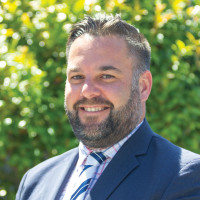
Preparations for winter sport are well and truly underway. I am looking forward to watching our teams play next term. A reminder for all Middle School students that participation in a sport, activity, or group is compulsory right throughout the year. If you have any concerns or queries regarding winter sport, please make sure you contact the relevant manager or sports co-ordinator.
It gives me great pleasure to announce that we will be holding the Year 11 Semi-formal on Saturday 15 June at Riccarton Park. This will be a wonderful event and I would encourage all Year 11 students to come along. Further details including cost, consents, etc. will be coming out at the beginning of next term.
Year 10 winter camps will be taking place throughout Term 3. Liz Gormack sent a gear list out recently so hopefully you were able to make the most of Easter sales if you needed any gear. More information will follow from Liz next term.
We are now in the enrolment and interview phase for Year 9 2025, which will be ongoing until June. It is fair to say that interest in attending the College is very high, which is a complement to our ambassadors, the students.
Tēnā koutou katoa
This week is the final one in what has felt like a very long Term 1 for our Senior College. I have commented to students on several occasions that I have particularly appreciated the way they have supported each other and worked together as a community over the last eleven weeks. We have also appreciated the day to day encouragement and support that comes from parents and caregivers as we have navigated the ups and downs of our busy lives.
In the spirit of acknowledging students who have contributed positively to our Senior College and wider school culture this term, we are recognising a number of our Year 12 and 13 students with awards and letters of commendation this week. The first of these awards has been instigated by our Director of Sports Strategy, John Haggart. John has developed the thistle metaphor for our sports framework, incorporating values of whanaungatanga (show respect), rangitiratanga (take responsibility), kia māia (show courage), and whai wāhi (stay engaged). Students who have shown one or more of these values through Term 1 were nominated by staff, and we are thrilled to be able to acknowledge them in year group meetings for the attitudes they have demonstrated on and off the sports field.
The second awards acknowledge students who have achieved an average of 4.0 or above in Fortnightly Feedback this term. This recognises students who are consistently engaged and focused in class in a way that is well above the basic requirements that we expect of all students. We have 15 Year 12 students and 27 Year 13 students who will receive letters congratulating them on their hard work and great attitudes in class so far this year.
I hope the holidays will provide you and your family with an opportunity for some rest and reflection after a long and busy term. Safe travels for those of you who are travelling around New Zealand (or possibly beyond), and I look forward to seeing all our amazing young people back at school on Monday 6 May. Please note that classes start at 8.30am with tutor meetings on the first day back.
Ngā mihi mahana ki a koutou.
John Ruge
Head of Senior College

Thank you very much to parents/caregivers, staff, and students for a highly successful first term. In particular I want to acknowledge the Deans, Riley Gain and Dayna Stirling, our Senior College PA Jocelyn Simmons, Careers Advisor Richard Webster, and Senior Learning Support team of Ellen Hampson and Shelley Broad. The whole team have worked tirelessly to keep this complex operation running smoothly and to give students the best support possible to help them achieve their goals.
Our student leaders, particularly the prefects and Senior College Council, have also done an amazing job of leading the student body, with a range of very successful initiatives and events.
Next term starts for all Year 12 and 13 students on Monday 6 May at 8.30am with tutor meetings.
Students are expected to be wearing their correct uniform for the start of term, so please check to make sure that you have everything ready. Refer to the Senior College Handbook if you are not sure about any uniform requirements.
A reminder that Blazer and Colour Awards are now on pre-embroidered patches. If you would like assistance with having these attached to blazers, please call in to the College Shop – Thistles and they will be able to assist you.
Any student who wishes to drive to school needs to have permission to do so. This involves filling in an online application form (click here).
If your child has not applied for and been granted permission, then they should not be driving to school. Please check over the holidays. We will be conducting some random audits of vehicles and their drivers early next term.
Having a car registered with the office helps us to ensure that parents have given permission for students to drive, enables us to keep track of vehicles, and very often means that we can help students if there are reports of damage, cars about to be towed away, or if lights are left on.
If your child is in Year 13, please ask them about our Focus programme which is run during Period 1 on Mondays. We have had a very wide range of speakers, aimed at getting students to think ‘outside the bubble’. Hopefully they will have some interesting thoughts and comments about what they have heard.
It has been a vibrant term in the co-curricular area. Students have embraced the many sporting and cultural opportunities on offer, and this is enriching their learning experience at St Andrew’s. I had the pleasure of watching our athletics at the Canterbury championships held recently, and it was pleasing to see the students take on new challenges, demonstrate character strengths, and in many cases achieve personal best performances. Across our summer sports and cultural activities our students are demonstrating faith, truth, excellence, inclusivity, and creativity in their preparation for performance.
During Summer Tournament Week there has been a great sense of pride and school spirit resulting from witnessing our teams achieve their goals. Over 150 students achieved significant results in athletics, touch, futsal, rowing, cricket, mountain biking, basketball, water polo, triathlon, tennis, and volleyball in tournament competition.
Congratulations to all students who have participated so enthusiastically in their sport and cultural activities this term, and to staff who have given freely of their time to make these opportunities possible.
After all of the highs of Summer Tournament Week and regional sporting competition we now set our sights on a successful winter sports season full of participation and achievement.
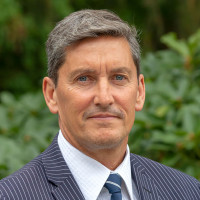
The changing of seasons has historically seen frustrated parents, flummoxed coaches, and overworked athletes. The COVID-19 pandemic provided an opportunity for New Zealand sports codes to address this.
As one sports season rolls into another, many young athletes historically have found themselves in the middle of the season transition dance – navigating conflicting schedules, extreme training loads, trying not to disappoint their coach by missing a pre-season training for a final here, or an important training session for a trial there.
In yesteryear, seasonality between sports was pretty clear. But as offerings grew, often in the vein of offering more development opportunities, winter sports began to creep into the summer season and vice versa. Unsurprisingly, the increasing overlap of sports seasons between codes has created frustrations for parents, coaches, administrators; and overloaded, led to the burnout of some young athletes.
But more recently, you might have noticed that sport season lengths, and their respective start and end dates have shifted in some sports.
The COVID-19 pandemic, which put pause to a lot of sport, provided many codes, both at national and regional levels of their game, the opportunity to review, reflect and recalibrate their seasons – collectively. It can’t be underestimated how important that last point is – that is the success of these changes, have in no small part been because of the cross-code collaboration.
In 2020, Sport New Zealand developed guidelines about season transition in consultation with a wider range of national sport organisations. Ultimately, these guidelines were in turn endorsed by 25 national sport organisations. Notably, there will always be regional and local differences for when it makes sense to start and finish sport seasons. So, these guidelines have been developed with a Locally Led Approach in mind (i.e. it’s hoped the guidelines would promote and guide conversation about making adjustments to sport seasons that were best for the regional and local contexts, not dictate the answers). In 2021, the guidelines were updated.
For sport administrators and organisers at national and regional levels, when it comes to wrestling with scheduling, rescheduling, clashes, cancelling, and postponements, they should consider:
Since the development of the season transition guidelines, there have been numerous examples of regional conversations to collectively review season length and season transition timing. Typically, these conversations have been facilitated by the region’s regional sport trust, but have also included the following stakeholders:
In a number of regions, formal agreements have been reached across-codes along with other stakeholders about defining season windows and season lengths.
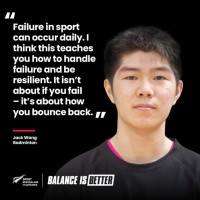 Tell us a bit about you and where you grew up.
Tell us a bit about you and where you grew up.
I’m currently a badminton player in the Badminton New Zealand Development Squad, and a student at the University of Auckland. I was born and grew up in Christchurch with my family, who took the plunge to move from China to New Zealand a little while back.
How did you first get involved in sport?
My first involvement with sport was either in primary school in Year 1, or with my family when I was about four or five. In primary, we all needed to play a sport, so I chose rugby and cricket. My family on the other hand had just started playing badminton since my older brother picked it up, so I joined them when they played at badminton club.
Why was sport important to you? How did it shape you personally?
Sport was important to me as a way to spend time with my friends and family while having fun. I was a kid that always wanted to have fun, and sport appealed to me quite well. Later on, it also became a way to stay physically healthy, and a way to get away from schoolwork when I didn’t really want to do any more homework. Sport has become such a large part of my life; it’s shaped quite a lot of me. It has helped me develop a strong work ethic, perseverance, and self-care (especially when injured), to name a few.
Were there any special people that had a positive impact on you? Who were they and why?
Family, friends, and coaches definitely had a positive impact. My mum and brother especially were very important in keeping me going when I was down and considering quitting sport altogether, and they’ve celebrated the highs with me too. One group of people that really helped me were my schoolteachers. They were all very considerate of my sporting commitments, especially in high school when I had to take time off for badminton. I was very lucky to have them aid me academically and with sport. They showed me it was possible to juggle academics and sport, something that I needed to learn.
What are the highlights of your sporting career?
Admittedly my sporting career has mostly been in the junior ranks, but in the senior level one of the best highs so far was winning the Men’s Doubles discipline at the Oceania Championships in 2022 with my partner. It’s probably the biggest senior competition I have competed at, so winning it was a complete thrill and a bit of a shock. I was also runner-up in the National Individual Championships in 2022, again in the Men’s Doubles discipline.
Are there any important lessons you learnt that you’d share with young people?
Sport is all about failure. There isn’t a single person who has played sport and won every match, or got into every team they wanted, or met every expectation and goal they set. Academia, cultural, musical, and other activities also expose people to failure, but not as much as sport does. Failure in sport can occur daily, or even multiple times a day. I think this teaches people how to handle failure, and how to be resilient. Resilience is an important and applicable skill to everyone. It isn’t about if they fail, it’s about how you bounce back for the next time.
Why is being a Balance is Better Champion important to you?
Being a Balance is Better Champion is important to me as I think that sport is beneficial for everyone, for their general well-being, not only physical health. It’s fun and should give people a sense of community, as well as an opportunity to try something they haven’t done before. It’s also a good way to de-stress and unwind from the pressures that people experience in life, and getting a sweat on never hurts!
What do you hope to achieve in being a champion for the programme?
I hope to be able to promote badminton as a sport to more people, so they’ll try it and pick up a racket. Badminton isn’t the biggest sport in New Zealand, but that doesn’t matter if some people give it a go, I’m more interested in the fact people try something new.
Why does the Balance is Better Champions programme excite you?
I believe the Balance is Better Champions programme is very beneficial to young people. They are finding their way in life, and that may lead to them dropping sport to pursue other goals, but I’ve also had lots of friends who have come back after a few years because they missed that feeling. I think just continuing to play sport throughout those years will be very beneficial to their well-being, and a programme like Balance is Better promotes this idea very well.
If there was one or two pieces of advice you could give to people supporting young people in sport, what would it be?
I think my main point is just to let them try their own thing and let them make their own mistakes. Some people may be afraid of making mistakes, or letting others make mistakes, but I believe it is one of the best ways to grow. When they might seem stuck with how to bounce back, being there to help them is a very important role of those aiding young people.
What value do you feel sport gives to young people who are involved at all levels?
I’ve said this a few times, but well-being. Sport improves lots of aspects of well-being; physical is the obvious one. Mental well-being is also improved, sport is very useful as a de-stressor, and the social aspect is also encompassed as sport can strengthen bonds between young people. It can also help with spiritual well-being, giving people a community where they can relax, have fun, and form lasting relationships.
We look forward to the winter sports season, and there will be trainings and games for some teams in the holidays that students are expected to be committed to. This is a good time to remind everyone of our expectations around sporting conduct for our coaches which then flows down to our parents and community. It is important that we all continue to role model the sporting behaviour we want from students particularly around the area of respecting the officials and keeping the game in context.
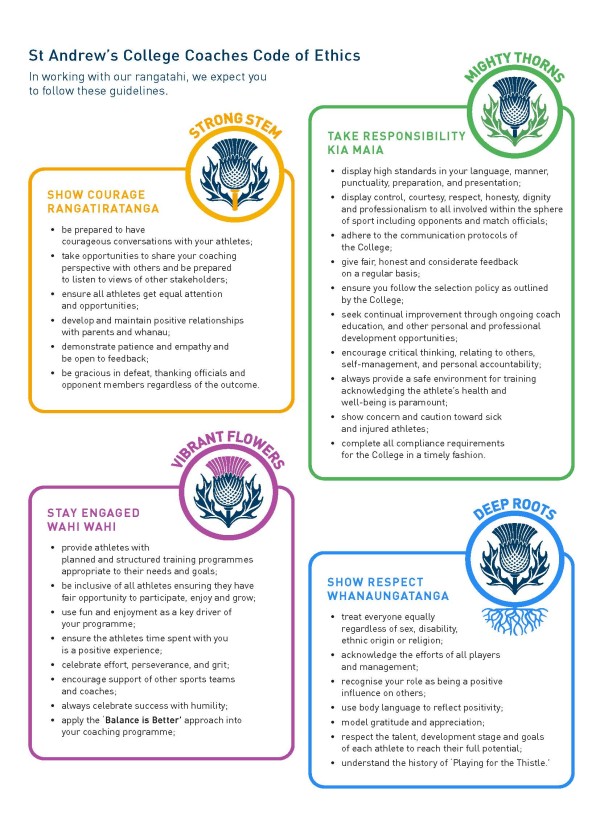
ANZAC Day 2024 – Many of our College Pipe Band members will be performing in many ANZAC services around the country during the term break. Lucas Paterson (Year 13), Tayla Eagle (Year 12), Sam Foote (Year 11), Harry Justice (Year 13) and Daniel Liu (Year 11) will travel to Wellington with the National Youth Pipe Band of New Zealand to perform in the main service at the Pukeahu National War Memorial. Other services include Akaroa, Leeston, Twizel, Dunsandel, Alpine View Retirement Village, and Victoria Park on the site of the 19th Battalion and Armoured Regiment Memorial.
Tayla Eagle will travel to Australia in the last week of Term 1 to compete with Haileybury School Pipes and Drums from Victoria at the Australian National Pipe Band Championships in Grade 3.
It has been a super busy term and there are 30 Music groups, two Theatre groups, one production, and five StAC Dance classes underway. We also have over 200 students enrolled in learning musical instruments. This means there are busy staff and students in the departments. Everyone is eagerly awaiting the opening of the new Ngā Toi Performing Arts Centre. Enormous thanks to the staff and Cultural Council for their work this term.
Thursday 4 April will be the first Cultural Showcase of the year. This is a chance to get a glimpse into some of the work that has been happening in performance groups and in classes. This will take place in the chapel and entry will be by koha to the So They Can charity.

We are very excited about the opening of the Theatre and the opening of Legally Blonde. We are thrilled that the show has sold out already. If you are coming, we hope you wear a touch of pink in celebration of the first show.
Mr Duncan Ferguson (Head of Music): DFE@stac.school.nz
Mr Lawrence Wiseman (Head of Drama and Dance): LWS@stac.school.nz
Ms Ginnie Thorner (Performing Arts Co-ordinator): GTH@stac.school.nz
|
1 – 3 May |
Production holiday rehearsals |
Theatre |
Cast only |
|
6 May |
Production tech rehearsal full day (Monday) |
Theatre |
Cast and musicians |
|
7 – 9 May (TBC) |
Production dress rehearsals |
Theatre |
Cast and musicians |
|
12 – 18 May |
Production (no show Wednesday night) |
Theatre |
|
|
20 – 23 May |
Rockquest recording sessions |
MS01 |
Some bands will have a two-hour recording session on one of these days. Exact dates TBC |
|
22 May |
Wednesday at 1.00pm concert |
St Mary’s (Manchester Street) |
Choirs and Barbershop groups |
|
24 May |
StAC Rock Night in the Theatre |
Theatre |
Rock School |
|
25 May |
Rockquest Canterbury Heats |
Aurora centre – Burnside High School |
Rock School |
